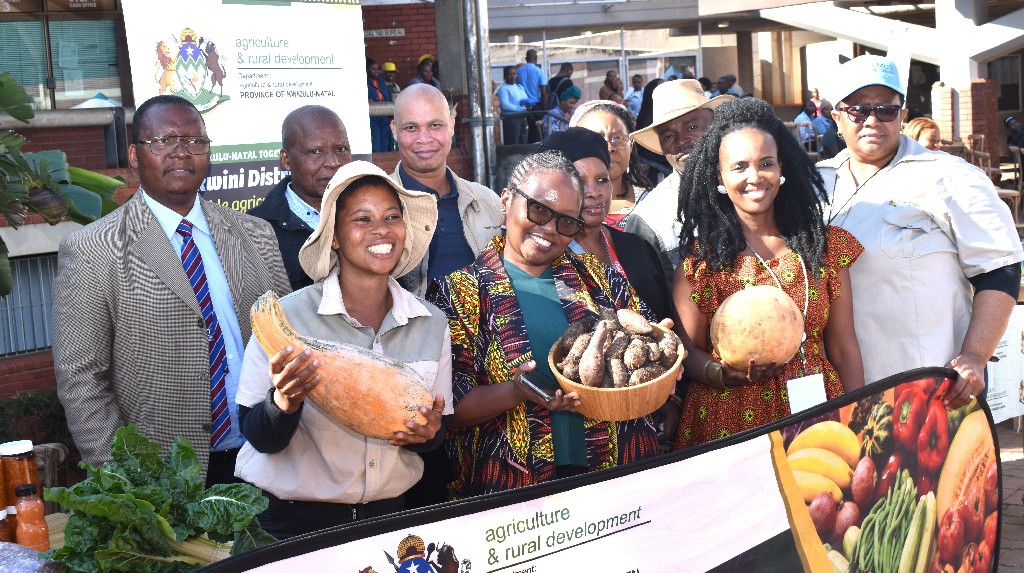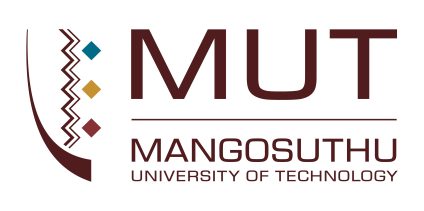
While it is still lovely to walk out of a supermarket with trolley full of all kinds of edibles, there are chances that an expert like Professor Xolile Mkhize of the Department of Community Extension might teach you a thing or two about the quality of food that is available at the supermarket, and other food outlets. This is what Professor Mkhize did on 17 June 2025 to her colleagues and students at the University. Using a loudspeaker to communicate a ‘critical’ message, Professor Mkhize said that “the South African food system is unjust and highly colonised. It displaced the indigenous food system.”
Professor Mkhize said the event held at the University’s Anniversary Lane was “not in isolation from key global and local agendas. “The event is premised on three platforms: global and local policy framework from the United Nations food systems, which are an indication of a health and environmental impact. Professor Mkhize their focus was on Pathways 1, which is to enhance sustainable local production and consumption of safe nutritious and indigenous foods; and responsive curriculum that is allowing the students and youth to be the agency of that transform not just in what they say, but reshaping food system as the future; and reclaiming “our African food system. We cannot be told by another continent that our food is healthy; we must start eating it. It is an embarrassment,” Professor Mkhize said.
Professor Mkhize, referring to staff and students, bemoaned the fact that “in your homes, there is a Western diet. This is a problem.” She said they were “acknowledging that the food we eat is not suitable for our bodies. South Africa is one of the United Nations’ key partners that promote the consumption of good food. She said that holding meetings like the one she was talking about was an effort by them to “change the system. We are aligning with the Sustainable Goals, primarily Goal 2, which is Zero Hunger. The goal aims to end hunger, improve nutrition, and promote sustainable agriculture by 2030. The goal emphasises ensuring access to safe, nutritious, and sufficient food for all, particularly vulnerable populations such as infants.
Professor Mkhize appealed for a change not only in what people buy, but also in their attitude towards the small farmers who produce indigenous food. “The indigenous farmers are looked down upon. People from outside Africa are informing us about our food. We need to own our food. We should take pride in our food. Let us look at our food with respect. Let us reclaim our food,” Professor Mkhize said. Professor Mkhize is aware that her call to change the status quo was a battle against a strong and fast-growing fast-food movement. “Every little corner in South Africa is full of fast food,” she said. Professor Mkhize said she was glad that MUT staff and students responded to the call to attend the event and hear the messages delivered by different speakers, and spent their hard-earned money to buy the high-quality food sold by small-scale farmers on the day. Some of these were alumni of Professor Mkhize’s department. Professor Mkhize said it was necessary to be “aggressive” when discussing the need to shift to indigenous, good-quality food. Professor Mkhize is aware that indigenous food is now scarce; “it is now from other regions”, meaning not available in Durban.
Dr Eric Mthembu, the Head of the Department of Community Extension, emphasises the need for communities to keep their indigenous seeds, which are pure, compared to genetically modified seeds. Dr Mthembu stated that indigenous seeds are beneficial for the environment, whereas genetically modified seeds harm it.
